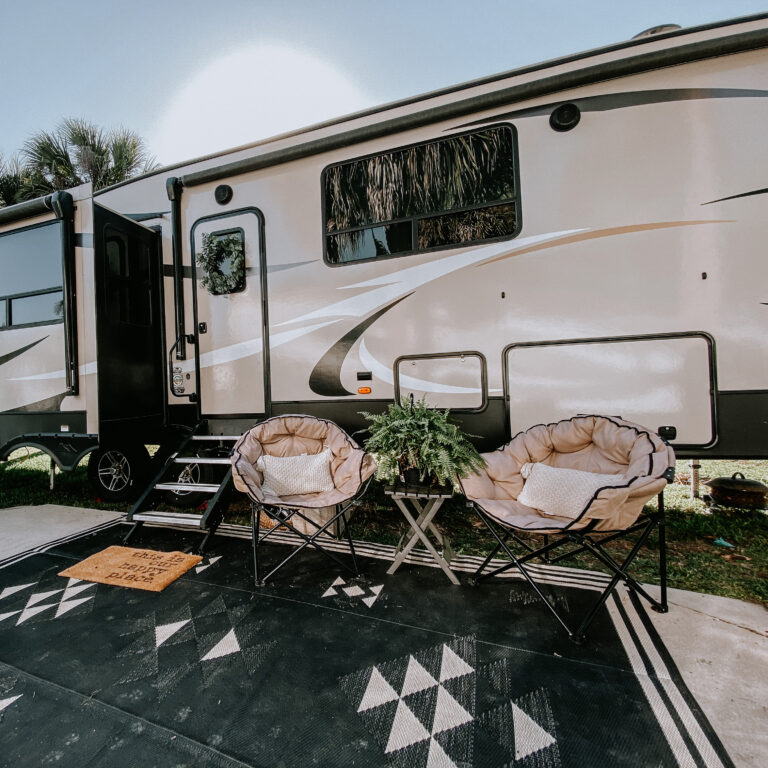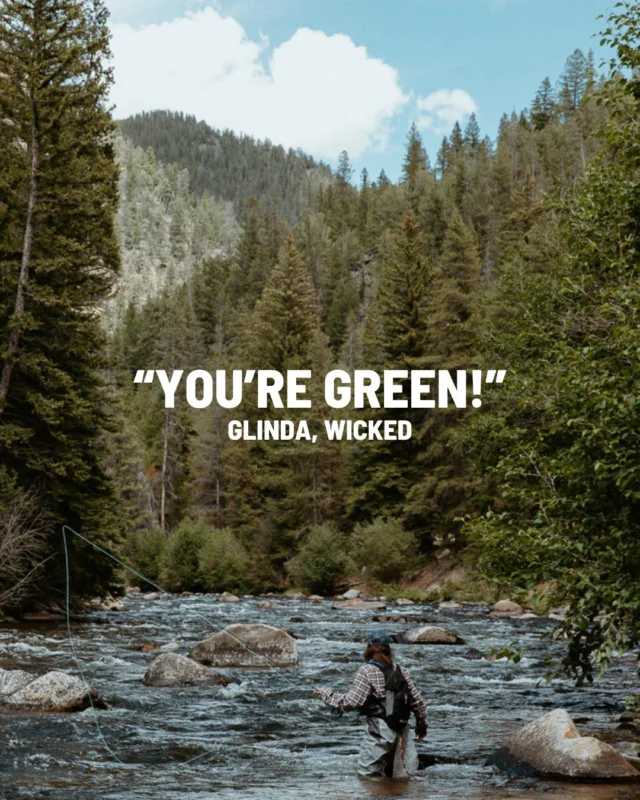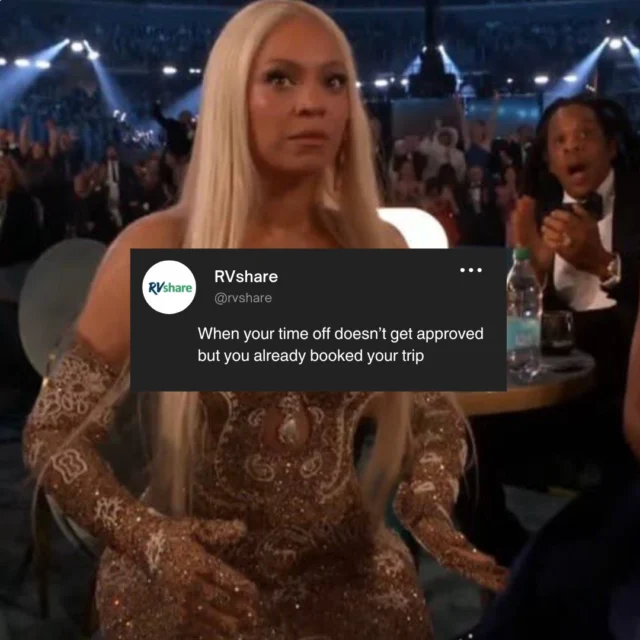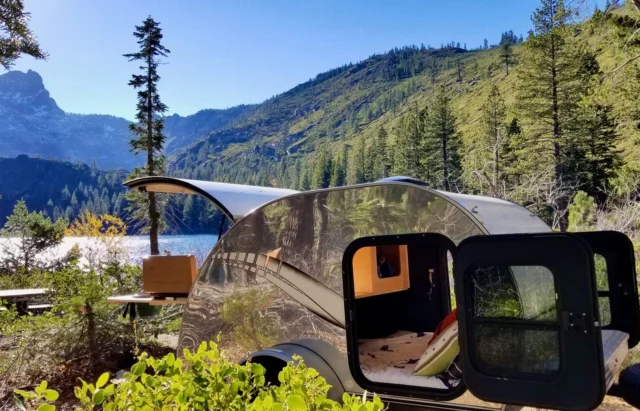
There are a whole lot of reasons to love travel trailers. They’re versatile, coming in a wide range of shapes and sizes from pop-up campers all the way up to luxurious toy haulers — which means you can find the right one for the job no matter which destination your road map is calling you to. In many cases, they’re more affordable and gas-efficient than motorhomes, and you can never find too many new ways to save money when you’re RVing. (Psst: don’t forget to sign up for Passport America, which will lop 50% off the top of your campsite accommodation fees at almost 1900 participating campgrounds nationwide!) But trailer campers do have one pesky, if obvious, problem: they need to be towed. And towing a trailer can be a bit daunting if you’ve never done it before — and honestly, sometimes even if you’ve been towing for ages.
Proper Trailer Towing
When you’re first learning how to tow a travel trailer, it can be overwhelming. You have to remember to give yourself plenty of extra room to brake, since all that weight increases your momentum, not to mention the process of checking and double-checking your tow hitch and brake connection before you even get behind the wheel.
And don’t forget about all the rules and guidelines you’ll have to follow, as well as RV trailer towing laws that vary by state. For example, if your trailer’s weight supersedes a certain threshold, you may have to invest in an electronic brake control system, and you always have to keep an eye on how much you’re bringing on board so as not to go above your GVWR.
But for all the added complications, travel trailers are a popular and comfortable option among RV renters, who appreciate their extra floor space and luxurious amenities.
So, what’s a trailer owner hoping to rent her rig on RVshare to do? You probably don’t want someone who’s towing a trailer for the first time to practice on your beloved vehicle.
Fortunately, there’s an easy way around this problem: you can tow the vehicle to the rental site yourself.
Towing a Trailer Safely
When renting out your travel trailer to new campers, there are a number of reasons you might want to step in and do the driving yourself.
First of all and most obviously, you might be uncomfortable with a new or novice driver who’s only on his first time towing a trailer practicing on your beloved vehicle. But there’s an additional complication, too: your renters might not be able to provide their own tow vehicle in the first place.
As you likely know, travel trailers require tow vehicles of a certain size and level of power in order to safely make their journeys on the road. And the tow vehicle’s official hauling capacity also has a bearing on the question, “Does car insurance cover towing a trailer?” — because if your camper weighs more than the tow vehicle is rated for, many insurance companies will forego your coverage in case of an accident.
Towing With a Car
“But what about towing a trailer with a car,” you may be wondering. “If it’s small enough, can I drive towing a trailer with my day-to-day vehicle?”
Obviously, trailers’ weights vary wildly — there’s a big difference between a little teardrop camper and a fifth wheel! That said, only the very smallest trailers can be towed with a regular four-door car, and even some SUVs lack the horsepower needed to ensure that the rig will travel safely. Always consult your owner’s manual or guide to see the kind of engine strength your RV requires. Most large trailers call for a half- or one-ton pickup truck, and it can be difficult to find one at a car rental facility if your renter doesn’t already have access to one.
That’s why it makes so much sense to consider towing a rental trailer to the rental site yourself. That way, you’ll know for sure it arrives safely, and you can ensure it’s all set up and ready to go for your renters. And it works well for them, too, by the way — they don’t have to worry about any of the hard work, but instead can simply show up, unpack their bags, and relax in the rental vehicle!
Practice Towing a Trailer
Even for those of us who own our own trailers and tow vehicles, it’s important to stay up to date on state laws on towing a trailer, and to revisit driving tips and advice for how to do it best. It’s a skill, like any other, and if you go too long in between practice sessions, you can get rusty. (So can your trailer hitch, by the way — don’t forget to double-check that all of your equipment is clean and in proper working order every single time you plan to tow!)
For example, just try backing up a trailer after you haven’t attempted to do so in a few weeks. It might take you a second to remember how to reverse, figuring out which way you need to turn the steering wheel to get the wheels on the ground to do what you want! If you’re planning on towing a rental vehicle for a group of renters and you haven’t moved your rig in a while, it might be a good idea to take a “driving test” of sorts before the travel date, just to ensure you still feel comfortable behind the wheel of such a large and heavy vehicle.
Finally, you always need to double-check your trailer-towing checklist before you leave, so you’ll always have strong brake and physical connections keeping you safe on the road. Things feeling a little sticky? Don’t forget to lubricate your tow hitch — some simple WD-40 can work wonders.
Common Problems
By towing a rental vehicle yourself, you can rest assured that your trailer will be in competent hands and arrive safely at the travel destination. And on the other side of the coin, your renters will enjoy the convenience and comfort of having little to do on their vacation besides arrive and relax. It really is a win-win situation for everyone involved!






